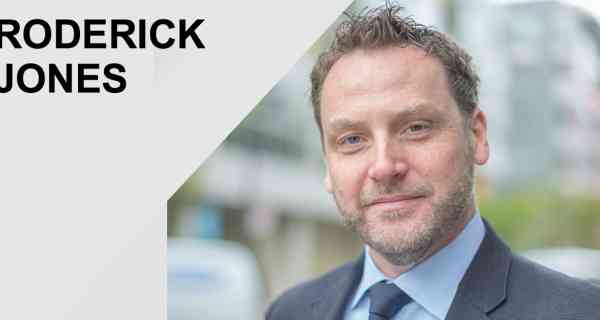
Roderick Jones Interview - assessing digital crime
Counter Terror Business (CTB) interviews global security leader Roderick Jones about the current state of UK cyber security in the face of terrorism
CTB: A recent report by Reform has argued that a range of changes are required to make UK police forces fit to fight the growing trend of digital crime. Just how important is it for UK police forces to educate their members of cyber crimes and their role in other offences?
Roderick Jones (RJ): Successive governments have been proclaiming year-on-year reductions in the crime figures and using this data to design a much more reduced policing delivery in the U.K. However, when cyber crimes were added to the official crime count this year the overall crime rate doubled. In short, crime has moved off the street and online and arguably by looking at the wrong data for years the Home Office has left UK police forces poorly equipped to handle this change. If half the crimes being committed are wholly digital in nature, and arguably most physical crimes have a digital evidential component to them, then police officers need to be fully conversant in digital crime to be effective.
CTB: The Bobbies on the net paper suggests that the Home Office should also create a digital academy to train cyber specialists. How important are cyber specialists in assisting the police meet the challenges of changing demands?
RJ: Training is critical in closing the knowledge gap that exists in the UK police around digital crime. While having a certain number of specialists is important digital training should be a general requirement for police officers and should form part of the basic training curriculum in the same way that other skills are core to being a police officer.
CTB: As the capabilities of technology expand, so do the threats. To what extent has the digital side of terrorism changed since you were a member of Scotland Yard’s Special Branch?
RJ: Terrorism has almost wholly virtualised in the period from when I was in Special Branch to now. Most aspects of terrorism have moved online from recruitment, ideological engagement, communication, fundraising and training. The one element that has remained physical is the attack itself but this too is likely to migrate online. Digital assassination of politicians by hacking their digital persona’s is possible and likely as are cyber terrorist spectaculars against infrastructure targets in the UK. It’s impossible to argue why the cyber trend in general crime won’t be fully replicated in terrorism.
CTB: Home Secretary Amber Rudd has warned that encrypted messaging services such as WhatsApp must not offer terrorists a place to hide. What are the dangers and vulnerabilities of encrypted applications?
RJ: The current Home Secretary hasn’t shown a particularly, solid command of her brief when it comes to technology. Encryption is a fundamental part of the Internet and is used in all kinds of daily digital engagements, so weakening or requiring backdoors to encryption is a misplaced idea. Technology development can’t be reversed and encrypted communications are now a reality for governments to manage. There was a time prior to the mass adoption of the Internet when communications between terrorists were hard to intercept, then the Internet provided a brief window when mass interception was possible but this window was negligible when considered over the span of the 100 plus years of modern terrorism in the U.K. A variety of techniques are used to develop intelligence in order to disrupt terrorism plots, intercepting communications is only one tool in this arsenal.
CTB: Following a number of large scale hacks this year, are organisation’s security standards rigid enough to face challenges?
RJ: No they aren’t. However, it is too easy to play the blame game because the Internet was built without any security in place because nobody thought it would be used for so many critical functions. As a society we are trying to adapt as quickly as we can to this reality and build in security after the fact. This takes time and therefore, this gap allows for the golden age of crime we are living through.
Roderick Jones is a global security leader with over 15 years of experience operating at the highest levels of the international security environment. During his time as a member of Scotland Yard’s Special Branch, Roderick focused on international terrorism and the protection of a prominent British cabinet member. He is the founder of cyber security firm Rubica, the global authority on cyber security and privacy for the world’s elite. Originally a service of Concentric Advisors, a physical security firm, Rubica provides those concerned with online crime the most effective digital security available. Jones received his master’s degree from the University of Cambridge.

digital issue
















